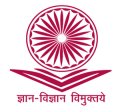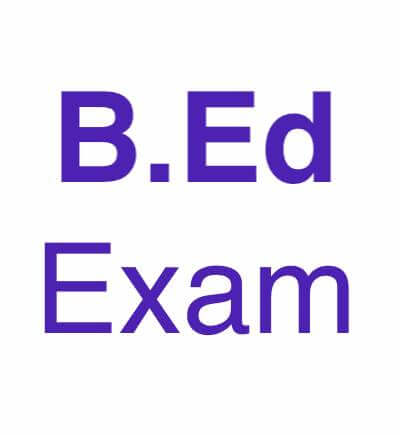Teaching
Teaching exams in India play a vital role in the recruitment and selection of teachers for various levels of education, from primary to higher secondary. These exams are conducted by different organizations and bodies at the central and state levels. In this detailed response, I will provide information about some of the prominent teaching exams in India, their eligibility criteria, exam patterns, and their significance.
Central Teacher Eligibility Test (CTET)
The Central Teacher Eligibility Test (CTET) is conducted by the Central Board of Secondary Education (CBSE). It is a national-level exam that serves as a minimum eligibility requirement for teaching positions in Central Government Schools (Kendriya Vidyalayas) and Navodaya Vidyalaya Samiti schools. The exam is conducted in two parts: Paper I for teachers of classes I to V and Paper II for teachers of classes VI to VIII. The CTET certificate is valid for seven years.
State Teacher Eligibility Test (STET)
State Teacher Eligibility Test (STET) is conducted by various state governments to assess the eligibility of candidates for teaching positions in state government schools. Each state has its own STET, and the eligibility criteria and exam pattern may vary. The exam is generally conducted in two papers, similar to CTET, for primary and upper primary levels.
Uttar Pradesh Teacher Eligibility Test (UPTET)
UPTET is conducted by the Uttar Pradesh Basic Education Board (UPBEB). It is a state-level exam that serves as the eligibility test for teaching positions in primary and upper primary levels in Uttar Pradesh. The exam consists of two papers, and candidates can choose to appear for one or both papers based on their desired level of teaching.
Punjab State Teacher Eligibility Test (PSTET)
The State Council of Educational Research and Training (SCERT), Punjab, conducts the Punjab State Teacher Eligibility Test (PSTET). This exam is conducted at the state level to determine the eligibility of candidates for teaching positions in primary and upper primary levels in Punjab.
Bihar Teacher Eligibility Test (BTET)
The Bihar Teacher Eligibility Test (BTET) is conducted by the Bihar School Examination Board (BSEB). It is a state-level exam that assesses the eligibility of candidates for teaching positions in primary and upper primary levels in Bihar.
Maharashtra Teacher Eligibility Test (MAHATET)
The Maharashtra State Council of Examination (MSCE) conducts the Maharashtra Teacher Eligibility Test (MAHATET). This exam is conducted at the state level to determine the eligibility of candidates for teaching positions in primary and upper primary levels in Maharashtra.
National Eligibility Test (NET)
The National Eligibility Test (NET) is conducted by the National Testing Agency (NTA) on behalf of the University Grants Commission (UGC). Although it is primarily conducted for determining the eligibility for Assistant Professor positions and for Junior Research Fellowship (JRF), clearing the NET can also make candidates eligible for teaching positions in universities and colleges across India.
State-Level Public Service Commission Exams
Various State Public Service Commissions (PSCs) conduct exams for the recruitment of teachers at different levels. These exams, such as the Rajasthan Public Service Commission (RPSC) Teacher Recruitment Exam, Madhya Pradesh Public Service Commission (MPPSC) State Eligibility Test (SET), and others, are specific to individual states and have their own eligibility criteria and exam patterns.
These are just a few examples of teaching exams in India. There are several other state-level and institution-specific exams conducted for the recruitment of teachers. The eligibility criteria for these exams generally require a minimum educational qualification in teaching or related fields, such as a Bachelor of Education (B.Ed) or Diploma in Education (D.El.Ed), along with a certain percentage of marks.
The exam patterns for teaching exams in India typically include objective-type multiple-choice questions, where candidates are tested on their knowledge of subjects like General Knowledge, English, Pedagogy, and specific subjects related to the level of teaching they are applying for. Some exams also have an additional interview or teaching demonstration round as part of the selection process.
Clearing teaching exams in India is essential to secure teaching positions in government schools, colleges, and universities. These exams ensure that candidates have the necessary knowledge and skills to become effective educators. They also help in maintaining the quality of education and setting benchmarks for teaching standards in the country.
Preparing for teaching exams requires a comprehensive study of the relevant subjects, along with practice solving previous years' question papers and mock tests. Many candidates also join coaching institutes or avail online study materials and resources to enhance their preparation.
Courses Offered for Teaching
| UGC NET Exam | CTET Exam | Career In Physical Education |
| UP D.EL.ED (BTC) Exam | CSIR UGC NET Exam | UPRTOU B.Ed Entrance Test |
| B.Ed Exam | TET Exam | UPTET Exam |
| DSSSB Recruitment Exam | HPTET Exam | TNTET Exam |
| HTET Exam | CSSET Exam | CET Delhi Polytechnic Exam |
| OTET Exam | NVS Recruitment | UP B.Ed JEE |
| Bihar B.Ed CET | MAH B.Ed CET | BSTC Exam |
| TS EdCET | Karnataka TET | Rajasthan PTET |
| APSET | Assam SLET |
Top 10 Teacher Training Courses in India
Bachelor of Education (B.Ed):
- Introduction: B.Ed is a common teacher-training course in India that prepares candidates for a career in teaching at the primary, secondary, and higher secondary levels.
- Scope: B.Ed graduates can work in schools, colleges, and coaching institutes. They can also pursue further studies or research in education-related fields.
- Seats: The number of seats varies by institution.
- Popularity: B.Ed is one of the most popular teacher-training courses in India.
- Eligibility: Graduation in any discipline with a minimum specified percentage. Entrance exams might be required by some institutions.
Diploma in Elementary Education (D.El.Ed):
- Introduction: D.El.Ed is a diploma course that focuses on preparing teachers for the elementary level (classes 1 to 8).
- Scope: D.El.Ed holders can become primary and upper primary level teachers.
- Seats: Seats vary based on the institution.
- Popularity: This course is widely popular due to the demand for primary-level teachers.
- Eligibility: 10+2 in any stream with a minimum specified percentage.
Master of Education (M.Ed):
- Introduction: M.Ed is a postgraduate teacher-training course that provides advanced knowledge in educational theories and practices.
- Scope: M.Ed graduates can become educational administrators, researchers, curriculum developers, and teacher educators.
- Seats: Seats are limited and vary by institution.
- Popularity: M.Ed is popular among those who seek specialization in education.
- Eligibility: B.Ed or equivalent degree with a minimum specified percentage.
Integrated B.A B.Ed and B.Sc B.Ed:
- Introduction: These integrated programs combine a bachelor's degree with teacher training, allowing graduates to become subject-specific teachers.
- Scope: Graduates can become subject teachers in schools and colleges.
- Seats: Seats vary based on the institution and the specific program.
- Popularity: These programs are gaining popularity due to their streamlined approach to teacher preparation.
- Eligibility: 10+2 in relevant subjects with a minimum specified percentage.
Post Graduate Diploma in Education (PGDE):
- Introduction: PGDE is a diploma course that provides training for individuals interested in secondary school teaching.
- Scope: Graduates can teach at the secondary level (classes 9 to 12).
- Seats: Seats depend on the institution offering the program.
- Popularity: PGDE programs are becoming popular for those interested in specialized subject teaching.
- Eligibility: Graduation in a relevant subject with a minimum specified percentage.
Bachelor of Elementary Education (B.El.Ed):
- Introduction: B.El.Ed is a four-year integrated program that focuses on elementary education and pedagogy.
- Scope: Graduates can become primary school teachers and educational researchers.
- Seats: Seats vary by institution.
- Popularity: B.El.Ed is gaining popularity due to its comprehensive curriculum.
- Eligibility: 10+2 in any stream with a minimum specified percentage.
Bachelor of Physical Education (B.P.Ed):
- Introduction: B.P.Ed is a program that prepares individuals to become physical education teachers.
- Scope: Graduates can work as physical education teachers in schools and colleges, coaches, and fitness trainers.
- Seats: Seats depend on the institution.
- Popularity: B.P.Ed programs are sought after for those interested in sports education.
- Eligibility: Graduation in any discipline with a minimum specified percentage and sports achievements.
Bachelor of Arts in Education (BA Ed):
- Introduction: BA Ed is a unique program that combines education with liberal arts subjects.
- Scope: Graduates can work as primary or secondary school teachers, curriculum developers, and educational counselors.
- Seats: Varies by institution.
- Popularity: BA Ed programs are gaining popularity for their interdisciplinary approach.
- Eligibility: 10+2 in any stream with a minimum specified percentage.
Certificate in Teaching (CT):
- Introduction: CT courses provide basic training for individuals who want to become primary or pre-primary level teachers.
- Scope: Graduates can teach at the primary or pre-primary level.
- Seats: Typically offered by teacher-training institutes, the number of seats varies.
- Popularity: These short-term courses are popular for quick entry into teaching.
- Eligibility: 10+2 in any stream with a minimum specified percentage.
Montessori Teacher Training Course:
- Introduction: Montessori teacher training courses focus on the Montessori method of education for early childhood development.
- Scope: Graduates can work as Montessori teachers in pre-primary schools.
- Seats: Seats depend on the institute offering the course.
- Popularity: Montessori training is sought after for those interested in early childhood education.
- Eligibility: 10+2 in any stream with a minimum specified percentage.
Read More:
- Career after B.Ed
- Career after D.Ed
- Career after M.Ed
- Career after B.El.Ed
- Career after D.El.Ed


